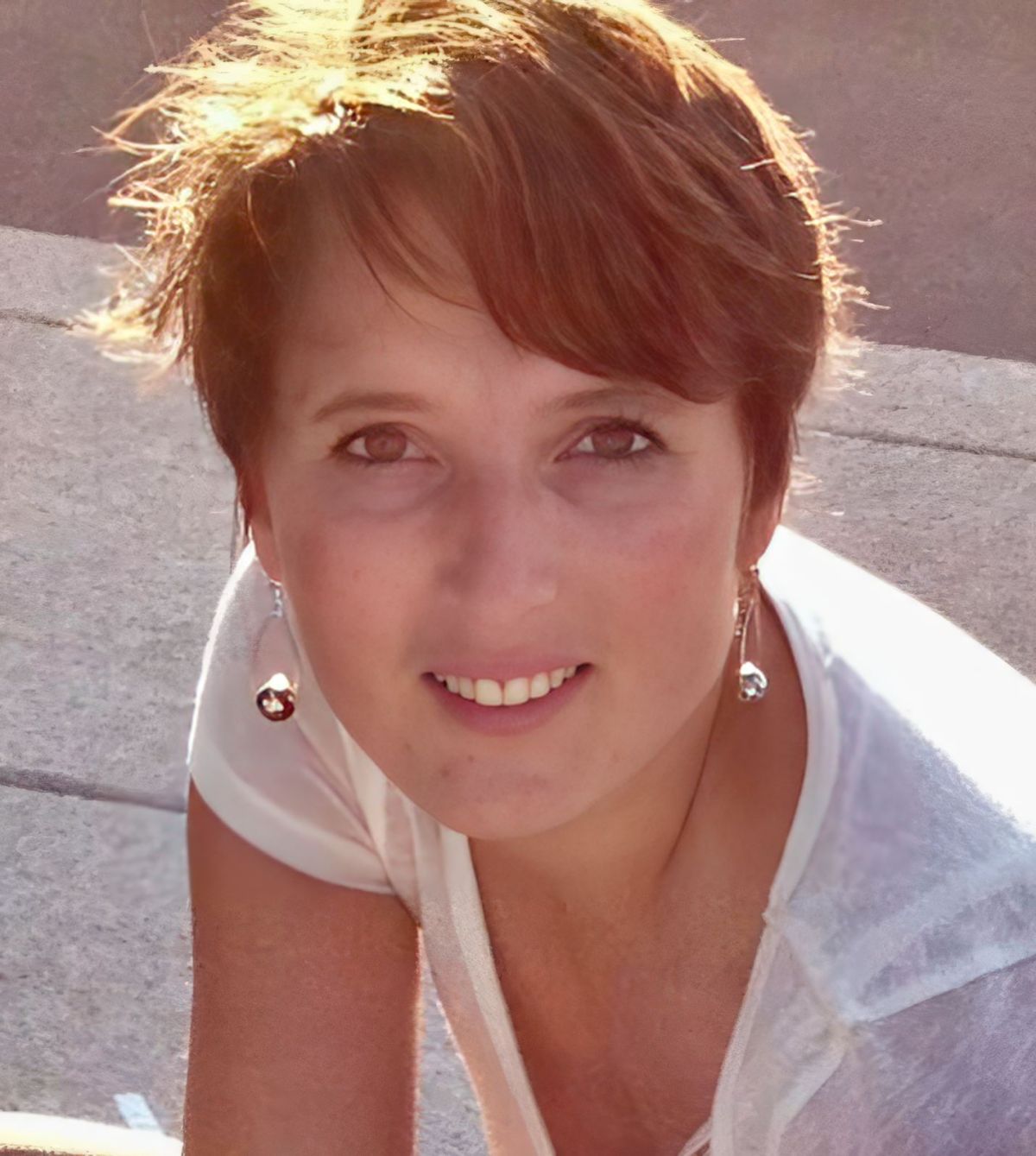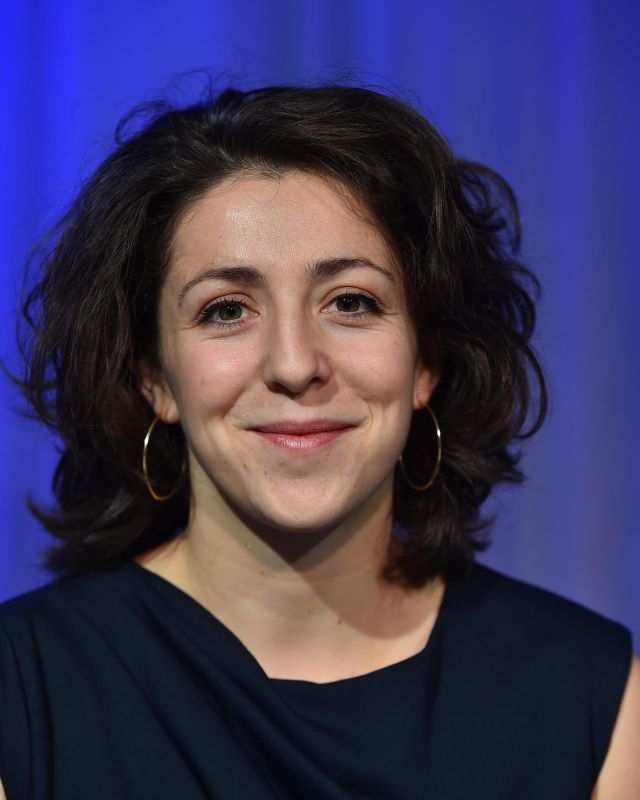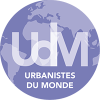Portrait

Céline Terrier-Laurens - GTU 2005 - Olympic and Paralympic Project - Paris 2024 : Environment, Planning and Greater Paris Coordinator at the General Secretariat of the City of Paris
Posted on | Alumni Portrait
Céline is passionate about urban planning and architecture. Always oscillating between the strategic and the operational and having worked at different scales, she has been part of the construction of the Greater Paris since its beginning. In Situ had the pleasure to meet this charming alumni at the City Hall and to talk with her about her professional career.
Berlin: its way to urban themes
After spending her childhood in St Quentin en Yvelines and passing her baccalaureate, Céline entered Sciences Po Paris, with the idea of becoming a journalist. Her ambition changed when, during her 3A at the University of Humboldt, the scars of history being particularly striking in Berlin, she became interested in the place of memory in the urban space. She then discovered territorial issues through history and sociology. Before entering her master's degree, she decided to do a three-month internship at the DATAR, where she worked on the national fund for territorial development. She was more interested in urban than rural issues, which were predominant at DATAR.
From transportation to development issues
Attracted by the operational skills she could acquire, she then chose to join one of the first classes of the "City" major, the premise of the Master's degree in Territorial and Urban Strategy, which at the time had only about twenty students. As part of her collective project, she responded to an SNCF competition to propose innovations in railway stations and she studied the tramway project of the Maréchaux Sud. This experience allowed her to do a summer internship at the Region. There, she studied in depth the subject of the Local Transportation Plan.
For her end-of-studies internship, Céline wanted to work in a SEM (Mixed Economy Company), even though the science track profile was not very well recognized at the time. Through perseverance, she landed an internship at SEMAPA (Société d'Economie Mixte d'Aménagement de Paris). As a young graduate, she wanted to continue working in operational urban planning and was hired by SEMADS (Société d'Economie Mixte de l'Arc de Seine), where she worked part-time for the City of Issy-les-Moulineaux. This very operational experience allowed her to discover the practical aspect of development, including site meetings. She finally joined the city's urban planning department; a great experience, especially thanks to the mayor's capacity for innovation. Although some of the projects she worked on never saw the light of day, such as the cable car between Mairie d'Issy and Fort d'Issy or Jacques Ferrier's Hypergreen tower, she nonetheless acquired a great deal of technical and legal expertise, ranging from the modification of a PLU to the creation of a ZAC, as well as the ability to manage a project via the creation of the city's "urban planning workshop".
The issue of status: master's degree, competitive examination and tenure
This experience at the city hall lasted two and a half years: Céline was then a contractual employee of the civil service. In order to change her status, she had to take the competitive examination to become a territorial engineer, which is often better recognized and better paid than the territorial attachés. However, this exam is reserved for "scientific and technical" graduates, even though the tests - a summary note and an oral exam - correspond perfectly to what she had been taught at Sciences Po. Céline therefore enrolled in continuing education at the Institut d'Urbanisme Parisien, in Créteil, on her own funds, in a Master's degree in Project Management and Urban Projects. On Fridays and Saturdays for one year, she obtained the pass that allowed her to take the competitive examination for territorial engineer - which she passed with flying colors (note that, since then, the conditions for taking the competitive examination for territorial engineer have been tightened and that this IUP diploma no longer allows you to take it).
As a result, she was able to take up her position at the Ile-de-France Region, where she had already been working for a year as a contractual employee. She is in charge of the "Greater Paris" mission at the Ile-de-France Region, a new job title since the "Greater Paris" does not yet exist. She works on what was then called the "dense zone" of the Parisian agglomeration and participates in the reflection on its governance. In particular, it contributed to the working group of the Planchou Commission's report "Scenario for the metropolis: Paris-Ile-de-France tomorrow". She also had the opportunity to work in the framework of the international consultation "Le Grand Pari(s)", launched by Nicolas Sarkozy, and then in the Atelier International du Grand Paris (AIGP) at the time of its creation, or in the creation of Paris Métropole. She will even go as far as Shanghai, for the 2010 Universal Exhibition, to present the work on the sustainable city of the Paris-Ile-de-France Pavilion.
From the regional administration to the City of Paris policy office
In December 2012, she was approached by Bertrand Delanoë's cabinet, who offered her the position of advisor on the issue of "Greater Paris". She accepted the proposal, which corresponded to her sense of politics and allowed her to have a strategic position, closer to the decision. In a tense situation between the Region and the City of Paris concerning the definition of the perimeter of the metropolis, she thus changed "sides" by changing institutions.
The experience in the office proved to be extremely enriching. She had the opportunity to work on the elaboration of the MAPTAM and NOTRe laws, but also on the two complementary aspects of the creation of "Greater Paris": the definition of its governance and territorial cooperation. The latter is reflected in concrete projects such as those for the gates of Paris or real estate sales agreements between Paris and other cities in the Paris region.
A new adventure: Paris' bid for the Olympic and Paralympic Games
The end of Bertrand Delanoë's mandate marks the beginning of a transition period. Céline joined the Secretariat General of the City of Paris and then joined the mission created to support the city's bid for the 2024 Olympic and Paralympic Games. The team, composed of 4 people, is the relay between the Mayor, the city services and the Paris2024 Bid Committee, which is a Public Interest Group (GIP) where 50 people work. Céline is in charge of planning, environment and links with other territories. The bid is an intense and stimulating project, bringing together all the city's agents. It is also a titanic project, costing 60 million euros: 10 million from the State, 10 million from the Region, 10 million from the city and 30 million from private partners. An adventure which certainly requires a lot of personal investment but which takes Céline all the way to Rio, as an observer of the Paralympic Games. She took part in the observer program on the organization of the games and in visits of the logistic backstage of the sites.
Finally, beyond the sports project, the bid is also a gas pedal of public policies, including the 43 measures of the Bid Support Plan, which should be implemented regardless of the final decision taken by the IOC in September 2017 (International Olympic Committee). Among these legacies left to Parisians, flagship projects such as the possibility of swimming in the basins of the Villette from 2017, and in the Seine in the longer term, or the redevelopment of the Porte de La Chapelle or the Saint-Denis Canal through the agreement signed between the City, the Departmental Council of Seine-Saint-Denis and the Territories of 93.
Thus, for Céline, the bid for the Games is another way to continue building Greater Paris through a concrete project.
Advice to students
Céline tends to advise students and recent graduates against starting out with an office experience. It is an exhilarating experience because of the proximity to power, but it can be difficult to come down. She recommends acquiring technical and legal experience and concrete skills beforehand, which will allow for a richer contribution to the firm.
She would like to encourage Sciences Po students to emphasize their ability to work across disciplines, which is a rare and very useful skill in any project management.
She advises doing internships from the end of the third year, building one's network and seizing opportunities, even pushing doors when they are sometimes closed. Being tenacious will always be useful.
Finally, it is easier and more pleasant to work with and for people who have convictions, a vision and whom you trust. This often leads to more efficiency in the outcome of the common project.
François-Xavier Salmon - STU 2007 / INET 2010 - Technical Advisor to the Director General of Services of the Nord-Pas-de-Calais Regional Council
Posted on January 25, 2017
During the trip to Lille in 2011, the students realized a "speed networking" in the morning. We found one of the portraits made! "It was during my studies t…
Audrey Noeltner - GLM 2012 - Co-Founder and Project Manager of the NGO Womenability
Posted on December 20, 2016
One of the first graduates of the Governing the Large Metropolis master's program at the Urban School, Audrey has had several professional experiences in both…
 English
English  Français
Français 




